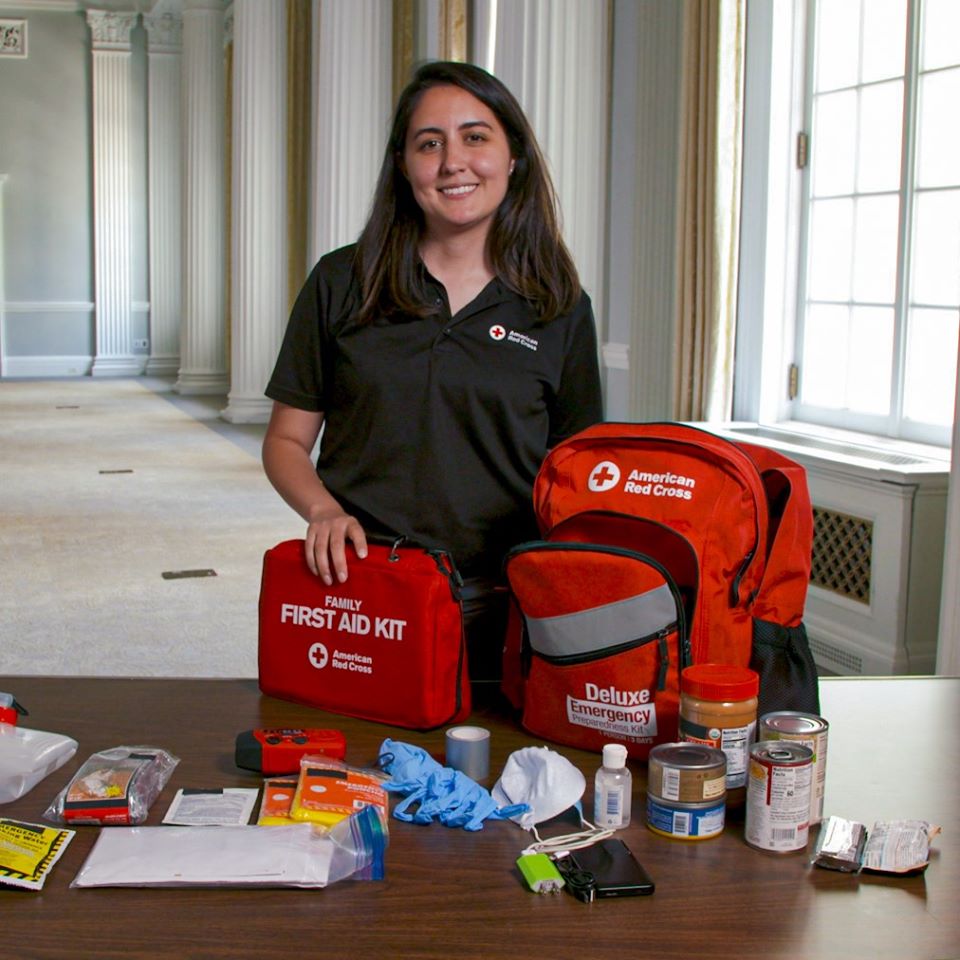
No one is immune to emergencies and disasters. These devastating events can disrupt the lives of individuals, families and communities, as well as an often-overlooked population many Americans are part of—caregivers.
Responsible for supporting someone who is ill, injured or aging, caregivers are all around us. And in the event of a disaster, they must have a plan in place to keep themselves and the person they care for safe.
No matter what hazard you and your loved one may face—wildfire, home fire or hurricane—adopting these preparedness tips today is critical to developing an efficient response and safe recovery when disaster strikes.
Kristee Lauro, Red Cross Community Preparedness Education and Youth Preparedness Senior Associate, breaks down our helpful tips for caregivers into three parts: assess your needs, build your support network and learn about your community response plans.
#1: Assess your needs
A caregiver’s emergency kit can look much different than that of a non-caregiver. “The best place to start when building your emergency preparedness plan is by identifying and assessing needs of the person that you care for,” said Brooke Dunn, Red Cross Itinerating Assistant Sheltering Manager.
- Personalize your kit to address your medical and personal needs. Make a list of medications, allergies, medical equipment, health insurance cards and the health history of your loved one.
- Stock up on a 30-day supply of medication. Make copies of your written prescriptions before having them filled, or ask your doctor or pharmacist for a printed copy of all your prescribed medications.
- Keep an updated photo of the person you are caring for in case you are both separated.
- Take inventory of all medical items and assistive devices that you rely on at home and would need to take with you if you evacuate.
- List all items that require electricity (i.e. refrigerated medicines, a CPAP device or a power wheelchair). If a power outage occurs, plan to have a battery or generator backup for those devices.
- If the person you are caring for has a service animal, be sure to include their food, water, harness and any additional necessary items they will need in your kit.
#2: Build your support network
Reach out to people outside of your household who can assist in times of disaster. “Have a conversation with the person that you are caring for about the kind of help you will both need, contact information of someone outside the area and concerns that one of you might have as well as options/resources available to address these concerns,” added Dunn.
- Keep a contact list of your support network. Ensure your network is aware of the needs and conditions of the person you are caring for.
- Communication is key. Teach others to communicate effectively with the person you care for who may require hearing, visual, speech or other communication adaptations if you are not present.
- Know how to provide additional emotional and behavioral support to help a person living with dementia or mental health diagnoses.
- Discuss getting the person you care for a personal or medical ID bracelet so emergency personnel and others outside of their household are aware of their needs.
#3: Learn about your community response plans
- Kickstart your emergency plan by staying in the know. Start by understanding the types of disasters that can happen in your community and learning about the emergency plans in place to respond to them. If you live in an apartment building or assisted living residence, Lauro recommends reviewing your management’s latest guidance on responding to disasters and emergencies.
- If a disaster requires you to relocate, allow yourself and the person you care for ample time to move someplace else. Have an idea of an alternate place to stay. Ensure this place has enough electricity and space to support your loved one’s medical devices/needs.
For more resources on staying safe with your loved one, check out Tips on Emergency Preparedness for Older Adults and our recent Facebook Live discussion on debunking myths about caregiving with Melissa Comeau, Red Cross Director of the Military & Veteran Caregiver Network.
